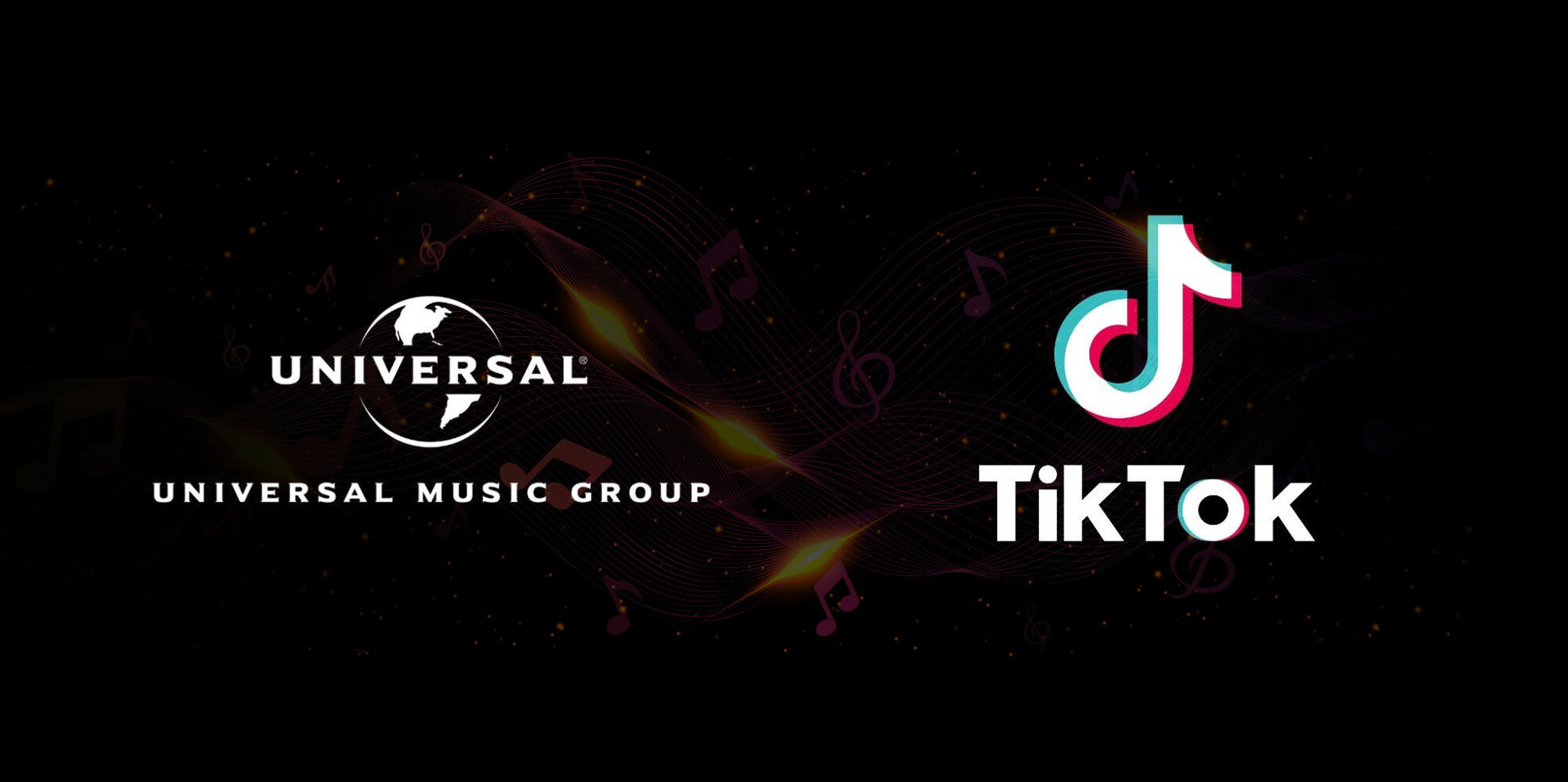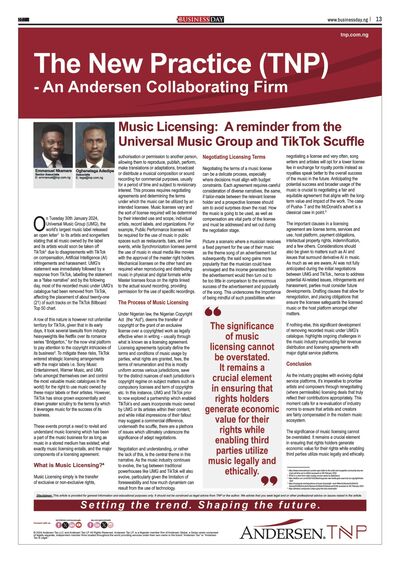On Tuesday 30th January 2024, Universal Music Group (UMG), the world's largest music label released an open letter to its artists and songwriters stating that all music owned by the label and its artists would soon be taken off TikTok? due to disagreements with TikTok on compensation, Artificial Intelligence (Al) infringements and harassment. UMG's statement was immediately followed by a response from TikTok, labelling the statement as a "false narrative" and by the following day, most of the recorded music under UMG's catalogue had been removed from TikTok, affecting the placement of about twenty-one(21) of such tracks on the TikTok Billboard Top 50 chart.
A row of this nature is however not unfamiliar territory for TikTok, given that in its early days, it took several lawsuits from industry heavyweights like Netflix over its romance series "Bridgerton," for the now viral platform to pay attention to the copyright intricacies of its business?. To mitigate these risks, TikTok entered strategic licensing arrangements with the major labels i.e. Sony Music Entertainment, Warner Music, and UMG (who amongst themselves own and control the most valuable music catalogues in the world) for the right to use music owned by these major labels or their artistes. However, TikTok has since grown exponentially and drawn greater scrutiny to the terms by which it leverages music for the success of its business.
These events prompt a need to revisit and understand music licensing which has been a part of the music business for as long as music in a stored medium has existed; what exactly music licensing entails, and the major components of a licensing agreement.
Download the full report to read more.



